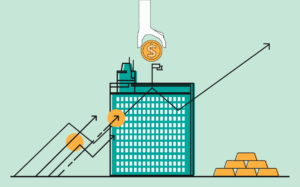FBAR Penalties Could Be Lessened Under New IRS Guidelines
According to the IRS, “if you have a financial interest in or signature authority over a foreign financial account, including a bank account, brokerage account, mutual fund, trust, or other type of foreign financial account, exceeding certain thresholds, the Bank Secrecy Act may require you to report the account yearly to the Department of Treasury by electronically filing a Financial Crimes Enforcement Network (FinCEN) 114, Report of Foreign Bank and Financial Accounts (FBAR).”
In other words, anyone who has money in a foreign bank account that exceeds $10,000 at any time during a given year will need to report that income to the IRS via an FBAR. However, recently, the IRS issued some new guidance regarding the penalties for those who don’t file an FBAR. According to reports, the IRS released a statement that noted: “For each year for which it is determined that there was a willful violation, examiners must fully develop and adequately document in the examination work papers their analysis regarding willfulness.”
For any case that involves willful violation for several years, it is up to the examiner to recommend the penalty length for each year the violation was determined to be willful. The IRS stated that typically the total penalty for the combined years under examination would not exceed ‘50 percent of the highest aggregate balance of all unreported foreign financial accounts during the years under examination.”
Meantime, an examiner can recommend more or less than the 50 percent threshold, but the total penalty cannot “exceed 100 percent of the highest aggregate balance.” There are obviously many possible scenarios and each case will be treated separately on its own merits and circumstances. The bottom line is you should still report your FBARs each year and report them on time. If you need help planning for and filing your FBAR then contact GROCO today at 1-877-CPA-2006, or by clicking here.
The State of the Private Equity Industry—Is It All Down Hill From Here?
In the past private equity has been a solid way of investing taking in trillions of capital, but with the ever changing world we live in, what is the state of the industry? Private equity investments typically consist of money being placed in a company by venture capital firms, private equity firms or angel…
How the Wealthy Save on Taxes
Whether you make minimum wage or you’re in the richest 1 percent of earners, every taxpayer likes to keep as much of his or her hard-earned income as possible. There are hundreds of ways to save on taxes and many of these strategies are universal to all taxpayers no matter which tax bracket they…
How the Internet Became Commercial
What’s Behind the Commercial movement of the Internet? Believe it or not the Internet was not originally created to share your life on social media sites like Facebook and Instagram or to watch movies, play games or follow your favorite pastime. When it was first invented, the military and research universities were the primary…
Critical Decisions When Launching a Startup
There are countless aspects to launching a startup company. To do it successfully a founder has to make many critical decisions and be right on most of them. Many entrepreneurs have a great idea or product with great plans to make it successful. However, they don’t make the right business decisions, which leads to their…




